The University of Chicago Press, Chicago 60637
The University of Chicago Press, Ltd., London
2020 by The University of Chicago
All rights reserved. No part of this book may be used or reproduced in any manner whatsoever without written permission, except in the case of brief quotations in critical articles and reviews. For more information, contact the University of Chicago Press, 1427 E. 60th St., Chicago, IL 60637.
Published 2020
Printed in the United States of America
29 28 27 26 25 24 23 22 21 20 1 2 3 4 5
ISBN -13: 978-0-226-70422-7 (cloth)
ISBN -13: 978-0-226-70436-4 (paper)
ISBN -13: 978-0-226-70453-1 (e-book)
DOI : https://doi.org/10.7208/chicago/9780226704531.001.0001
Library of Congress Cataloging-in-Publication Data
Names: Christenson, Dino, author. | Kriner, Douglas L., author.
Title: The myth of the imperial presidency : how public opinion checks the unilateral executive / Dino P. Christenson, Douglas L. Kriner.
Description: Chicago ; London : The University of Chicago Press, 2020. | Includes bibliographical references and index.
Identifiers: LCCN 2019054894 | ISBN 9780226704227 (cloth) | ISBN 9780226704364 (paperback) | ISBN 9780226704531 (ebook)
Subjects: LCSH : Obama, Barack. | Trump, Donald, 1946 | Executive powerUnited States. | Separation of powersUnited States. | Public opinionPolitical aspectsUnited States. | United StatesPolitics and government. | United StatesPolitics and government20092017. | United StatesPolitics and government2017
Classification: LCC JK 516 . C 48 2020 | DDC 352.23/50973dc23
LC record available at https://lccn.loc.gov/2019054894

This paper meets the requirements of ANSI/NISO Z 39.48-1992 (Permanence of Paper).
To our inspiring moms, Vincenza and Debbie
This book is the culmination of a broader project that began about seven years ago. As a result, we are indebted to a large number of colleagues, friends, and family members who have helped us along the way.
For constructive feedback and suggestions received over the course of the project, we would like to thank Adam Berinsky, Anthony Bertelli, Jan Box-Steffensmeier, Fang-Yi Chiou, Jeffrey Cohen, Chris Dawes, Jamie Druckman, David Glick, Jeff Jenkins, Will Howell, Sam Kernell, George Krause, Dave Lewis, Molly Roberts, Larry Rothenberg, Andrew Rudalevige, Gina Sapiro, Sharece Thrower, Adam Warber, Herb Weisberg, Graham Wilson, and our anonymous reviewers. We are particularly grateful for the continued dialogue with our friends and colleagues Andrew Reeves and Jon Rogowski; engaging their work has strengthened our own. Various chapters benefited greatly from seminar participants at Clemson; Cornell; Emory; New York University; Penn State; Rochester; University of California, San Diego; University of South Carolina; University of Southern California; Washington University in St. Louis; the American Political Science Association; and the Midwest Political Science Association.
We thank Boston University and Cornell University for generous financial support of our work, and Ishaan Bakhle and Lucas Wesselius for excellent research assistance. Christenson would like to thank Matthew Blackwell for related conversations and support while a visiting scholar at Harvard Universitys Institute for Quantitative Social Science (IQSS), as well as Gary King for making his time there possible. He would also like to thank Azer Bestavros and the Hariri Institute. Kriner would like to thank Vincent Della Sala for helpful conversations and support while a visiting scholar at the Jean Monnet European Centre, University of Trento.
We would be remiss if we did not thank the outstanding team at the University of Chicago Press who helped bring this project to fruition. We would specifically like to thank our editor Chuck Myers, for his guidance and insight throughout the project, as well as Sandy Hazel, Susan Karani, Melinda Kennedy, Adriana Smith, and Alicia Sparrow. We also thank Tobiah Waldron for indexing assistance.
Finally, we would like to take a moment to acknowledge our great debt to our families, specifically Erin, Peter, Thomas, and Vincenza Christenson, as well as Jillian Goldfarb and Gary and Debbie Kriner. These poor folks have listened to countless versions of each chapter and virtually every idea in rambling audio format. They have tolerated sudden departures from the topic at hand to those in the book over our meals and holidays together, not to mention picked up the slack around our homes so we could concentrate on this work. Despite all that and more, they have continued to encourage us. This book would not be possible without their love, support, and, frankly, their patience and tolerance.
An Imperial Presidency?
While the dramatic expansion of the federal government following the New Deal and World War II greatly increased the institutional resources of the executive branch, every postwar president has struggled mightily to translate this leverage into mastery over politics and policymaking. In 1960, the father of modern presidency scholarship, Richard Neustadt, argued that the presidents constitutional powers are so meager and the executives reliance on other actors so great that presidential power amounts to little more than the power of persuasion. Three decades later, despite the offices continued growth, Neustadt saw little reason to change his assessment. When thinking about presidential power, he argued, weak remains the word with which to start.
To overcome legislative inertia, presidents routinely rely on powers not specifically enumerated in Article II of the US Constitution. But they do more than simply endeavor to persuade other actors to behave as they would like. Instead, presidents can eschew persuasion altogether and employ a range of unilateral instruments to effect significant changes in policy without needing to secure congressional assent. To their supporters, such actions illustrate the energy and dispatch of the executive branch to meet the needs of the nation as extolled by Alexander Hamilton in Federalist 70. To their opponents, unilateral initiatives prompt plaintive cries of usurpation.
Has the rise of presidential unilateralism fundamentally upset the constitutional balance of power in American politics? Most civics classes present an abidingly clear vision of separation of powers. Congress creates the law. Presidents take care that it is faithfully executed. However, reality has never been so clear-cut. Presidents have long asserted and the courts have affirmed the chief executives power to effect major changes in public policy with the stroke of a pen, absent any legislative sanction from Congress. By employing a range of tools including executive orders, memoranda, proclamations, and national security directives, presidents have materially influenced many of the most important domestic and foreign policy issues facing the country. Presidents have unilaterally taken us to war; dramatically expanded the territorial size of the nation; ended slavery in the South; interned tens of thousands of US citizens in concentration camps; desegregated the armed forces; reduced pollution in the air we breathe and the water we drink; authorized warrantless electronic surveillance on Americans communications; and shielded millions of undocumented persons from deportation.

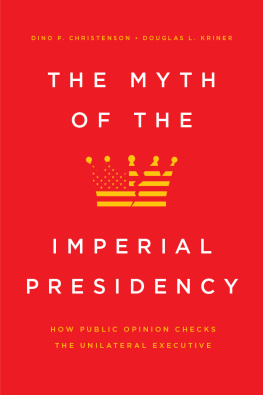
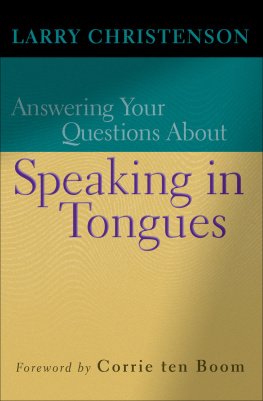
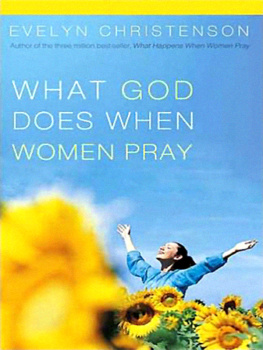
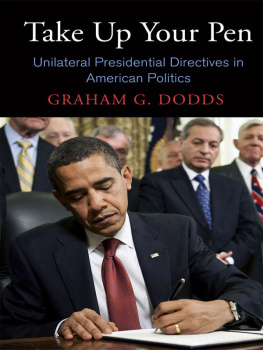
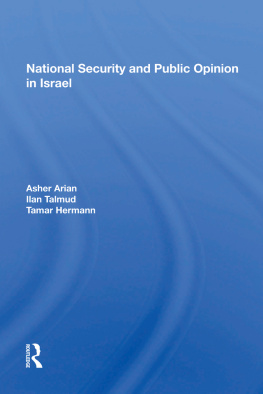
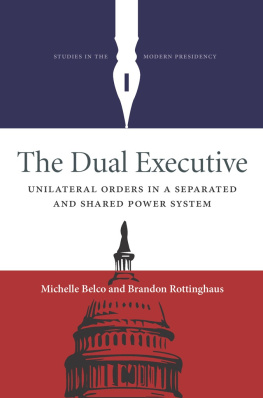
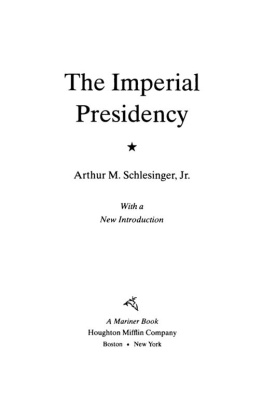
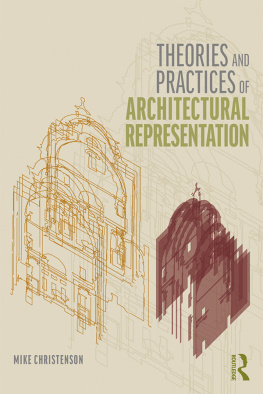


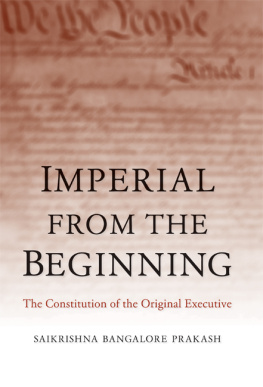
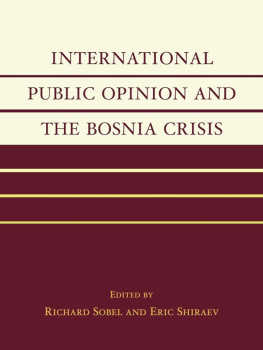
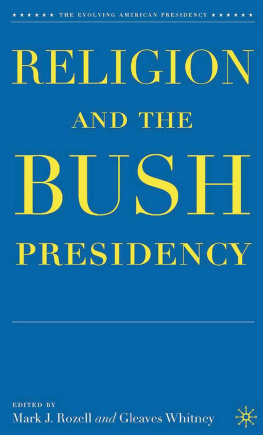
 This paper meets the requirements of ANSI/NISO Z 39.48-1992 (Permanence of Paper).
This paper meets the requirements of ANSI/NISO Z 39.48-1992 (Permanence of Paper).